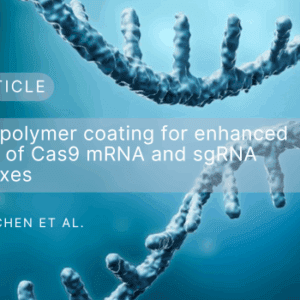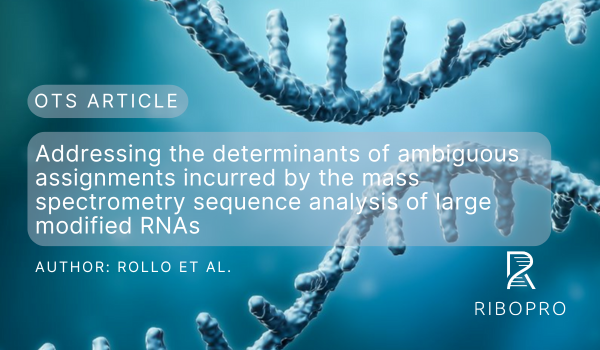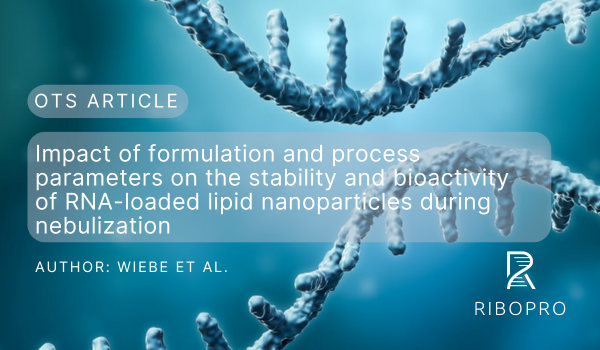Authors
Siyu Chen, Simone Pinto Carneiro, Olivia M Merkel
Keywords
OTS mRNA
DOI
https://doi.org/10.1039/d4bm01290a
Journal: Biomaterials Science
PMID: 39687993
PMCID: PMC11650648
Abstract
Polymeric carriers have long been recognized as some of the most effective and promising systems for nucleic acid delivery. In this study, we utilized an anionic di-block co-polymer, PEG-PLE, to enhance the performance of lipid-modified PEI (C14-PEI) nanoplexes for delivering Cas9 mRNA and sgRNA targeting KRAS G12S mutations in lung cancer cells. Our results demonstrated that PEG-PLE, when combined with C14-PEI at a weight-to-weight ratio of 0.2, produced nanoplexes with a size of approximately 140 nm, a polydispersity index (PDI) of 0.08, and a zeta potential of around -1 mV. The PEG-PLE/C14-PEI nanoplexes at this ratio were observed to be both non-cytotoxic and effective in encapsulating Cas9 mRNA and sgRNA. Confocal microscopy imaging revealed efficient endosomal escape and intracellular distribution of the RNAs. Uptake pathway inhibition studies indicated that the internalization of PEG-PLE/C14-PEI primarily involves scavenger receptors and clathrin-mediated endocytosis. Compared to C14-PEI formulations, PEG-PLE/C14-PEI demonstrated a significant increase in luciferase mRNA expression and gene editing efficiency, as confirmed by T7EI and ddPCR, in A549 cells. Sanger sequencing identified insertions and/or deletions around the PAM sequence, with a total of 69% indels observed. Post-transfection, the KRAS-ERK pathway was downregulated, resulting in significant increases in cell apoptosis and inhibition of cell migration. Taken together, this study reveals a new and promising formulation for CRISPR delivery as potential lung cancer treatment.



